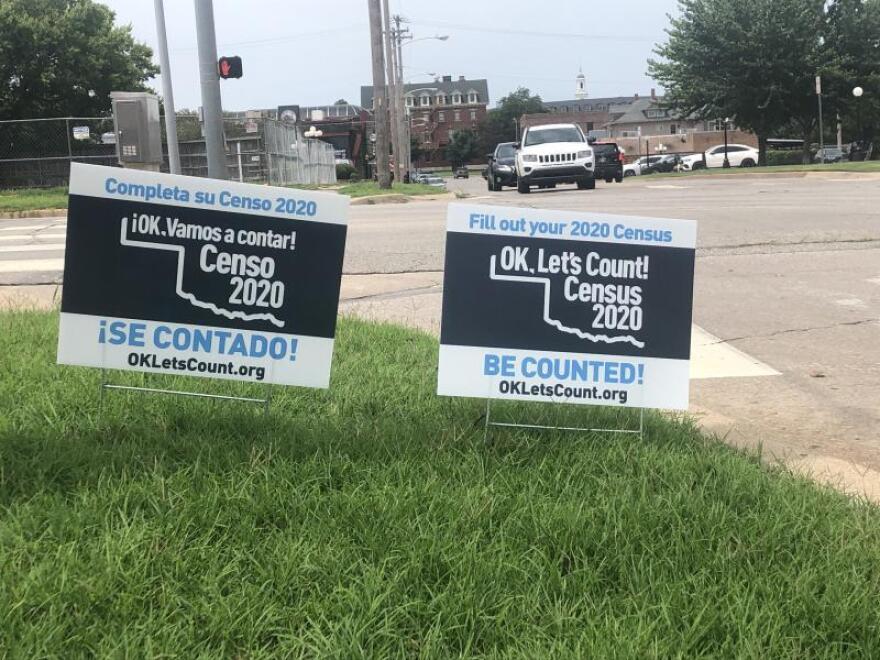The Census Bureau is working to count every household in the U.S., but response rates--especially in rural areas--are lagging behind 2010. Lower self-response rates could risk inaccurate counts.
Oklahoma, Kansas, Missouri, Illinois, Nebraska areup to five percentage points behind in self-response rates compared to 2010, according to the Census 2020 Hard to Count Map at the City University of New York. Of that group, Oklahoma has the lowest self-response rates of the states with 59.8%. Nebraska has the highest, with 70.9%.
Self-response rates have risen as much as three percentage points in each of the states since the Census Bureau workers started knocking on doors. Steven Romalewski, who oversees the Hard to Count Map, says the Census Bureau expected more people would respond on their own when door knocking started.
But there are still rural areas in Oklahoma that are behind compared to self-response rates in 2010, and he says this is a trend happening across the country.
Romalewski says the Census Bureau will need to knock on more doors before the Sept. 30 deadline. That’s concerning, he says, because the more houses workers have to count, the less likely the Census Bureau will be able to count adequately.
“So people will be missed and households may not be counted accurately, and the worry is that it will disproportionately impact communities that were already hard to count,” Romalewski says.
Emily Kelley, the Census Bureau partnership coordinator for Kansas and Oklahoma, says they are setting up mobile questionnaire assistance sites in lower responding areas in both states through a local partnership program.
Since July, the engagement program has set up more than 275 sites in Oklahoma. She says historically, Kansas has had higher self-response rates than Oklahoma.
After 2020, the Census Bureau plans to research why there is a discrepancy among state response rates. Kelley says local engagement and partnership programs make a difference..
“If your pastor talks to you about why being counted in the census is important, that may speak more to your heart than if a federal employee shows up at an event and tells you why the census is important,” Kelley says.
Josh McGoldrick, chief of staff and general counsel for the Oklahoma Department of Commerce, says while he thinks the census efforts in Oklahoma have been good, so far they haven’t gotten the results they wanted.
“It's been somewhat of a challenging year, just because of, you know, COVID has really made the ground game a little more difficult,” McGoldrick says.
The deadline to respond to the census is Sept. 30, and can be filled out online.








